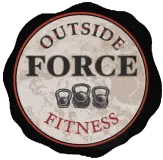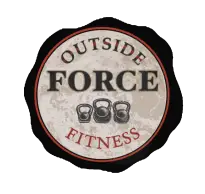The average person loses muscle mass with age. There are many reasons for this and in looking at each of those reasons, we can take small but deliberate steps to counter each of them. Everyone ages so this applies to you too.
Why Do We Lose Muscle Mass As We Age?
Here are the reasons you lose muscle mass with age:
- Hormone changes
- Digestion changes
- Level of physical activity
- Our body’s natural way of preserving energy
Hormone Changes That Cause Muscle Loss
Two hormones play the biggest role in the loss of muscle mass: testosterone and human growth hormone (HGH).
Testosterone is a major hormone related to muscle mass. If you’ve got a lot of it, you can build muscle. Anabolic steroids are actually just synthetic (man-made) variations of testosterone. Anabolic steroids have often been abused by athletes or body builders trying to gain a lot of muscle fast.
To increase testosterone levels, exercise is a must. You should also get some sleep and eat a well-rounded diet. Check out a full list of ways to boost testosterone.
HGH is the other key player in the loss of muscle mass. Exercise happens to be the thing that boosts this guy the most. There are several other ways to boost HGH, but exercise is definitely the major one.
Notice that the main component in each of these is exercise. The biggest factor is to USE your body.
How Your Digestive System Changes With Age
As we get older, our stomachs produce less acid.
In order use the food we eat, we have to break it down into its smallest parts.
For example, there are various types of protein, but all proteins are made up of amino acids. Your body doesn’t absorb protein, it absorbs the amino acids and then recombines them into the proteins that are needed for various applications. Acid plays a role in breaking down this protein.
If you don’t eat a diet with enough protein, you don’t have the basic building blocks from which to build muscle.
I have heard about various solutions to overcoming this, such as taking lime and water with your food or apple cider vinegar. Talk to your doctor to see what is right for you.
Muscle Mass and Your Level of Physical Activity
Your level of physical activity plays a key role in whether or not you have muscle.
Our bodies run on a use-it-or-lose-it basis. If you stop using your right arm, the muscles will atrophy, bone mass will decrease, nerve activity will decrease, circulation will decrease and it will all but fall off. The same thing happens with the rest of your body. If you don’t make your body do physical work, then your body will go the same route as your right arm.
This stuff isn’t rocket science. I wish it were because I’d get paid a lot more.
Your Body Is a Master at Saving Energy
Your body is inherently lazy. It does not want to do a single thing more than necessary. It wants to survive and that means conserving energy for a potential future where there is no food around to eat.
Most of us haven’t had to skip meals because of a lack of food in our environment. But our bodies have evolved in environments where you died if you didn’t have a little big of fat on you. Those bodies that stored up a little energy made it through and had kids that could store energy.
Fat is an easy commodity to store. It may not look to good to carry it around and if you have a lot, then it becomes a burden. But overall it is easy. Your body stores it and forgets about it. Just think about it, you eat a taco and then 15 years later, you can utilize the energy from that taco! It’s pretty amazing, actually.
Muscle is not an easy commodity to store. It is expensive to keep around. It requires a lot of calories to stay on the shelf. Your muscles burn energy at rest and muscle mass is actually a major factor in your basal metabolic rate.
If you want your body to have muscle, then there has to be a really big need for it. You create that need by stressing the body with resistance/strength training. If you don’t provide the stimulus necessary to use your muscles, then your body isn’t going to respond by putting the muscle there.
The basic point is that your body’s programming is towards survival. That translates to: “Don’t waste any energy in case I have to go a week without food.” So it dumps unnecessary things like excess muscle, bone mass, etc.
Conclusion
As we get older, we lose a lot of things. Muscle is one of them and is the most obvious, but you don’t see the decrease in bone mass with the naked eye. You also don’t see decreased nerve activity or circulation. But these do all happen.
I have a bigger philosophy that I try to get across to everyone I meet both inside and outside of the gym. It is simple.
Learn new things.
If you’ve never learned to dance, then put on a cowboy hat and boots and learn to two-step. The balance, coordination and agility of dancers never ceases to amaze me. When I see a 75 year old woman walking tall and moving with grace, I always ask if she’s a dancer and I’m right 100% of the time.
If you don’t know how to play tennis, learn. If you don’t know how to speak in front of a group, learn.
The stress and discomfort of learning and making an ass out of yourself usually turns people away from learning new things. But learning new things stresses not only your mind, but all the systems of your body. You are using them, I’m sorry if it is uncomfortable at first.
The more you use, the less you’ll lose.


